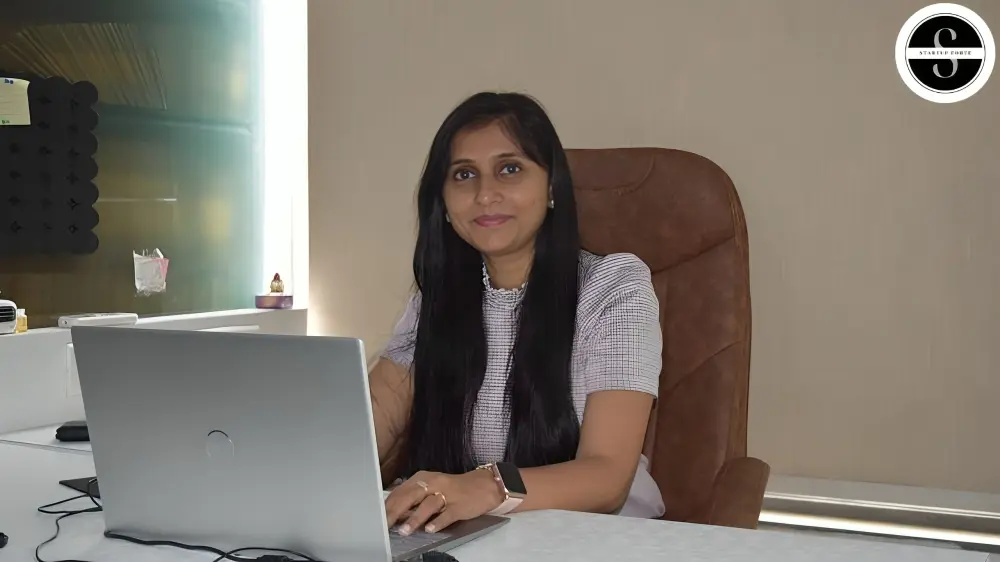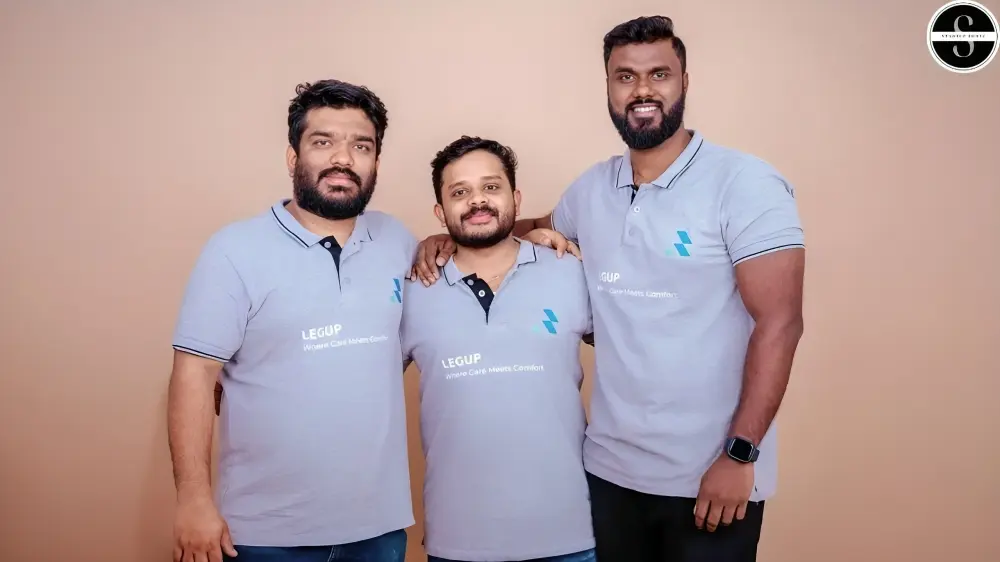What inspired you to start BabyOrgano?
My inspiration came from my son, Kayaan’s, health struggles. When Kayaan suffered from colic at 4-5 months old, my grandmother’s home remedy of applying diluted Asafoetida (hing) on his navel brought relief and comfort.
However, when my grandmother returned home, I found myself unable to prepare these homemade remedies due to my busy schedule.
Unable to find suitable Ayurvedic baby care products in the market, I decided to create my own.
Thus, BabyOrgano was born, focusing on providing natural solutions for babies like Kayaan.
Is it necessary to have a co-founder?
I feel it’s time I address it.
Yes, I feel running a business single-handedly is much more difficult than having someone by your side to share your responsibilities.
Single founders are more susceptible to problems like:
💼 No shared burden – It’s impossible to juggle everything from tech and sales to HR and fundraising without exceptional multitasking skills.
❓ No room for ‘I don’t know’ – If you’re clueless, chances are nobody else has the answer either.
💬 No outlet for venting – Employees aren’t sounding boards; when the CEO/Founder speaks, it’s a call to action.
🎭 No room for a good cop/bad cop routine internally – Decisions need to be straightforward, as alternatives aren’t viable.
🌟 Inherent tendency for a one-person-centric company – In the early days, all decisions, major and minor, will likely land on your plate until the business establishes a rhythm and the second tier steps in.
🤒 No luxury of falling sick – Your presence is crucial in the initial stages; without you, the ship won’t sail. You alone command the vessel.
There are a lot of amazing founders out there who are single-handedly running successful businesses.
But I feel a co-founder gives you that shoulder to rely on whenever you’re exhausted.
What is your biggest learning after building India’s first Ayurvedic babycare brand?
Entrepreneurship isn’t just about being a business owner.
Entrepreneurship is about:
🎯 Willingness to take risks.
🧪 Willingness to experiment.
👥 Willingness to manage teams.
🔍 Willingness to identify opportunities and much more.
People usually have a very surface-level understanding of being a business owner. But here is what an entrepreneur’s life actually looks like:
🔥 Running a business comes with more challenges than you might expect. Every day brings new hurdles, like low stock or delayed deliveries, and facing tough competition. It’s not easy, and it’s definitely not for the faint-hearted.
💡 Staying in the game is tough too. Your product has to be more than just a passing trend; it needs to stay relevant for years.
🛑 Taking a break isn’t really an option for entrepreneurs. Holidays, whether local or national, don’t mean time off. It’s a constant, relentless effort.
🤝 Managing a team is no walk in the park either. Finding and keeping good employees is an ongoing battle, as competitors are always trying to snatch them away.
Every job has its ups and downs, but being an entrepreneur demands extra dedication and effort because, in the end, it’s your own business.
If you’re in this game, go all in with determination and a strong mindset!
What is the best financial advice you’ve ever received, Riddhi?
I got this question recently while I was out for lunch with a couple of my friends.
I told them, before I purchase anything, I ask myself, “Do I really need this?” 🤔
There was a confusing expression on their faces. Actually, they were expecting some heavy financial advice.
I believe financial smartness comes with the most basic life lessons.
Let me give the most basic example which I read somewhere.
It’s extremely sunny, you’re walking towards your home. You feel thirsty, and your water bottle is empty, but still have a significant distance to cover.
You stop by a store and ask for a 10 rs water bottle. But the shopkeeper is charging 20. You see no other shop nearby; hence, you pay what’s charged even when you know it’s unethical.
The same incident repeats.
You’re walking and thirsty, but this time, your water bottle is full. You cross by the shop, the shopkeeper is running an offer. The 10 rs. water bottle is available for just MRP. 1.
You look at the offer and walk away because you don’t need to buy the water bottle at that moment.
The thing is, it’s valid to pay an additional amount whenever there is a genuine need. But when there is no need, paying even 1 rupee is pointless.
Now tell me,
How many of you go overboard whenever e-commerce sites announce sales? It doesn’t matter we need the stuff or not, but because there is a price slash, we buy them. Because we fail to understand this basic thing in real life.
Put your money in the right things instead of hoarding unnecessary stuff. This, in my view, is the most essential principle to grow our wealth. 💰
Let’s spend wisely and invest in our future! 💡








